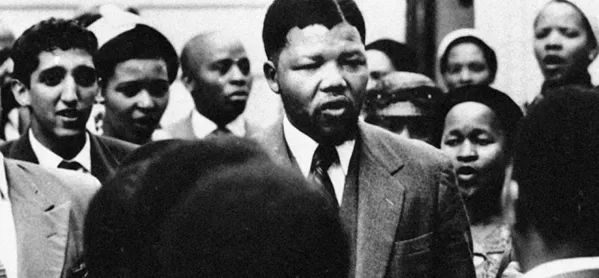‘The function of education is to teach one to think intensively and to think critically. Intelligence plus character - that is the goal of true education’ - Martin Luther King Jr
Individuals like Nelson Mandela and Martin Luther King Jr are inspirational heroes who open the minds of young people. More recently, names like Malala Yousafzai have had an astonishingly powerful effect in awakening hearts. Their stories show young people that they have the potential to achieve anything despite the adversities they may face - that they, too, can be limitless.
But when we mention the names Shazia Ramzan, who was also hit by the shower of Taliban bullets in the back of their school bus with Malala, or Wyatt Walker, who supported Martin Luther King Jr during the life-threatening US civil rights movement, these same faces turn blank.
It is often too easy to place the groundbreaking human rights achievements or struggles of nations on one or two charismatic individuals. But this misrepresents the collectivism of their struggles.
For alongside the most famous names, hidden from view, are the equally important unsung heroes and invisible stars. They powered the movements that fought injustices. Yet for most of us, these are people we know too little about.
For young people, it is crucial they get to know them. This is not theory: they provide the real examples to young people that they can all be special, that they all have amazing talents that the world needs, and they all can play a powerful role to bring about positive change in society.
These examples remind young people too that real change doesn’t come overnight but is the product of great vision, and sheer grit. It proves that change is not about fame as much as it is about sacrifice and selflessness. And it shows that to be a change-maker means more than being the leader that tops the organisation, the figurehead whose name is chanted by a crowd, or the spokesperson on television. Everyone can and must play their wonderful part - just like people in the great movements did. Take the words of Malala:
’One child, one teacher, one book, and one pen can change the world.’
We must discover, highlight and celebrate the hidden heroes of the world. We must teach that change didn’t always come from one person but a movement of like-minded individuals campaigning together - be it for racial equality, education for all or the end of apartheid.
Some of the unknown heroes of our age are the people who stood in the dock with Nelson Mandela. They were prepared to sacrifice their lives for freedom and racial equality.
This January 2016 they will be coming to London to meet 40 lucky young people.
Ahmed Kathrada (accused no. 5), Denis Goldberg (accused no. 3) and Andrew Mlangeni (accused no. 10) were all sentenced to life imprisonment and served 74 years in jail between them.
And we’ll remember the words of Nelson Mandela: ‘Education is the most powerful weapon which you can use to change the world.’
Competition
The Life is Wonderful initiative and the Patchwork Foundation, together with TES, the Prince of Wales’ mentoring charity Mosaic and UpRising, are honoured to be providing the amazing life-time opportunity for 40 young people to meet with Nelson Mandela’s co-accused, Ahmed Kathrada, Denis Goldberg and Andrew Mlangeni.
We will be holding a private meeting and Q&A with these inspirational heroes. This will be chaired by our patron John Pienaar, BBC Radio 5 Live chief political correspondent, at a special venue in Westminster.
To be in with a chance of winning a place, young people should send a 200-word essay or a link to a two-minute Youtube video about the people who inspire them to think differently about the world and how or why to info@patchworkfoundation.org.uk.
The deadline for the essay or video is 4 January 2016. Entrants must be aged 18-25 and able to come to London on 25 January 2016 at 8am.
Want to keep up with the latest education news and opinion? Follow TES on Twitter and like TES on Facebook




